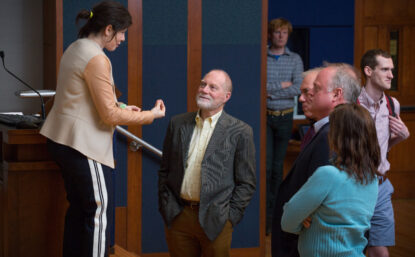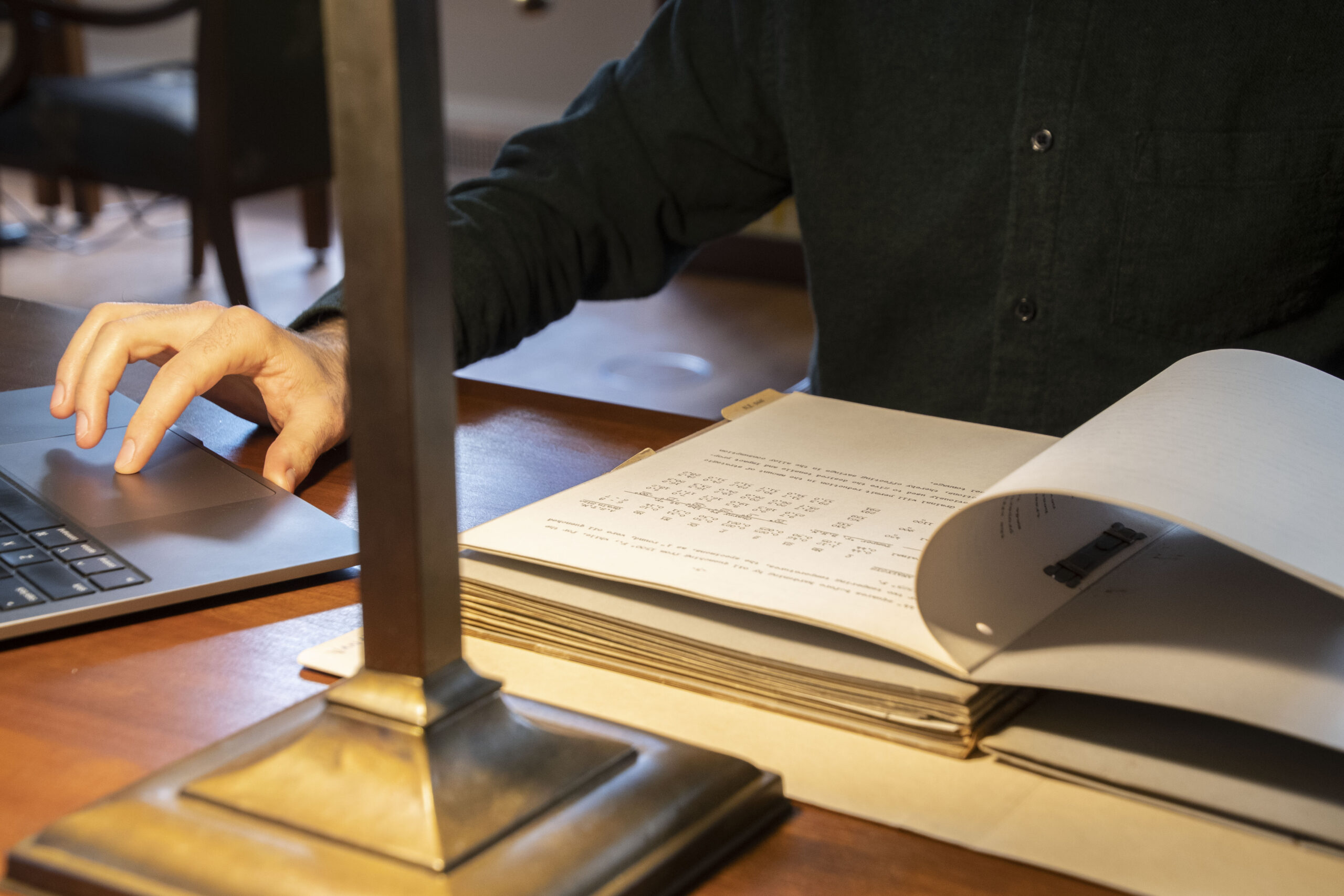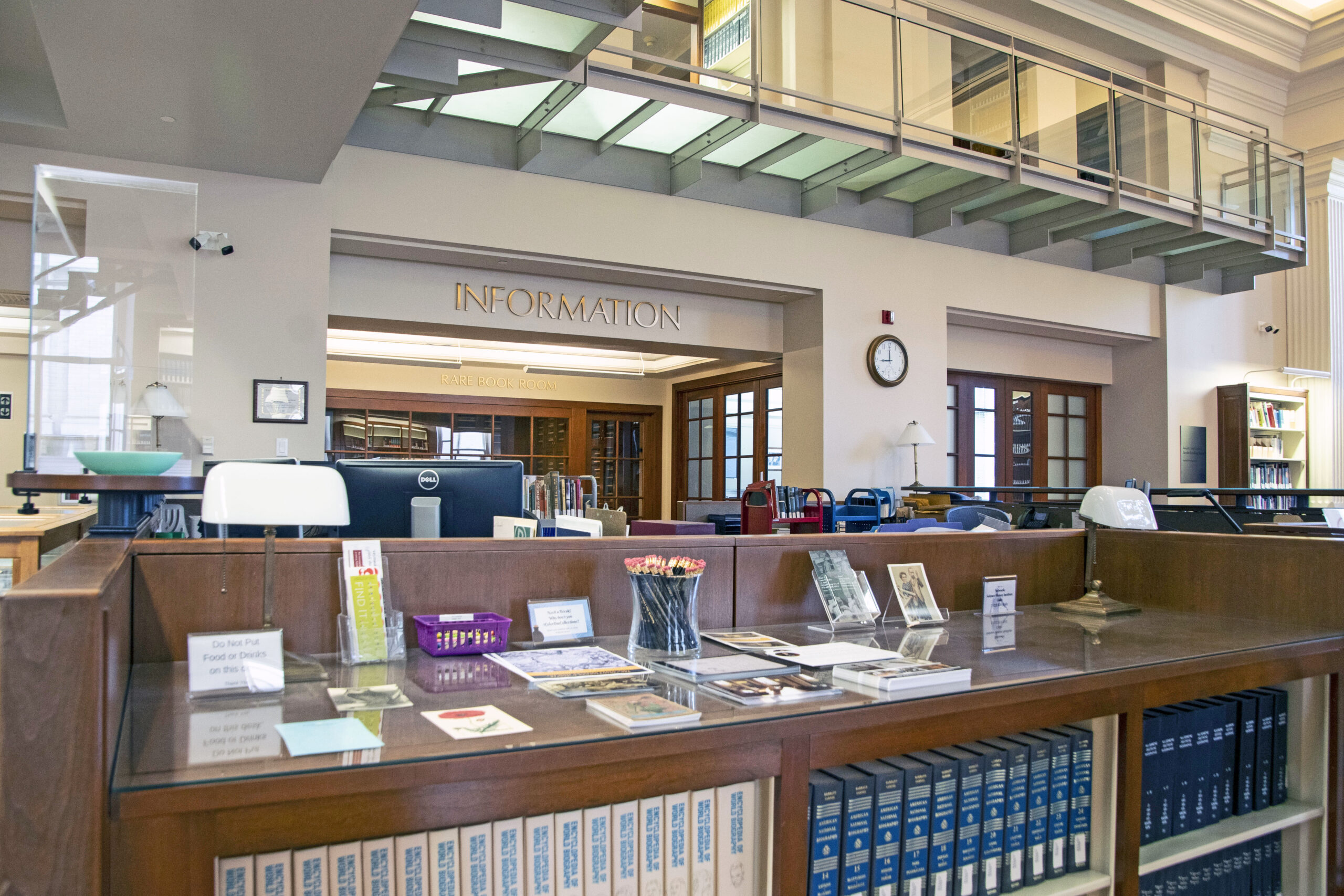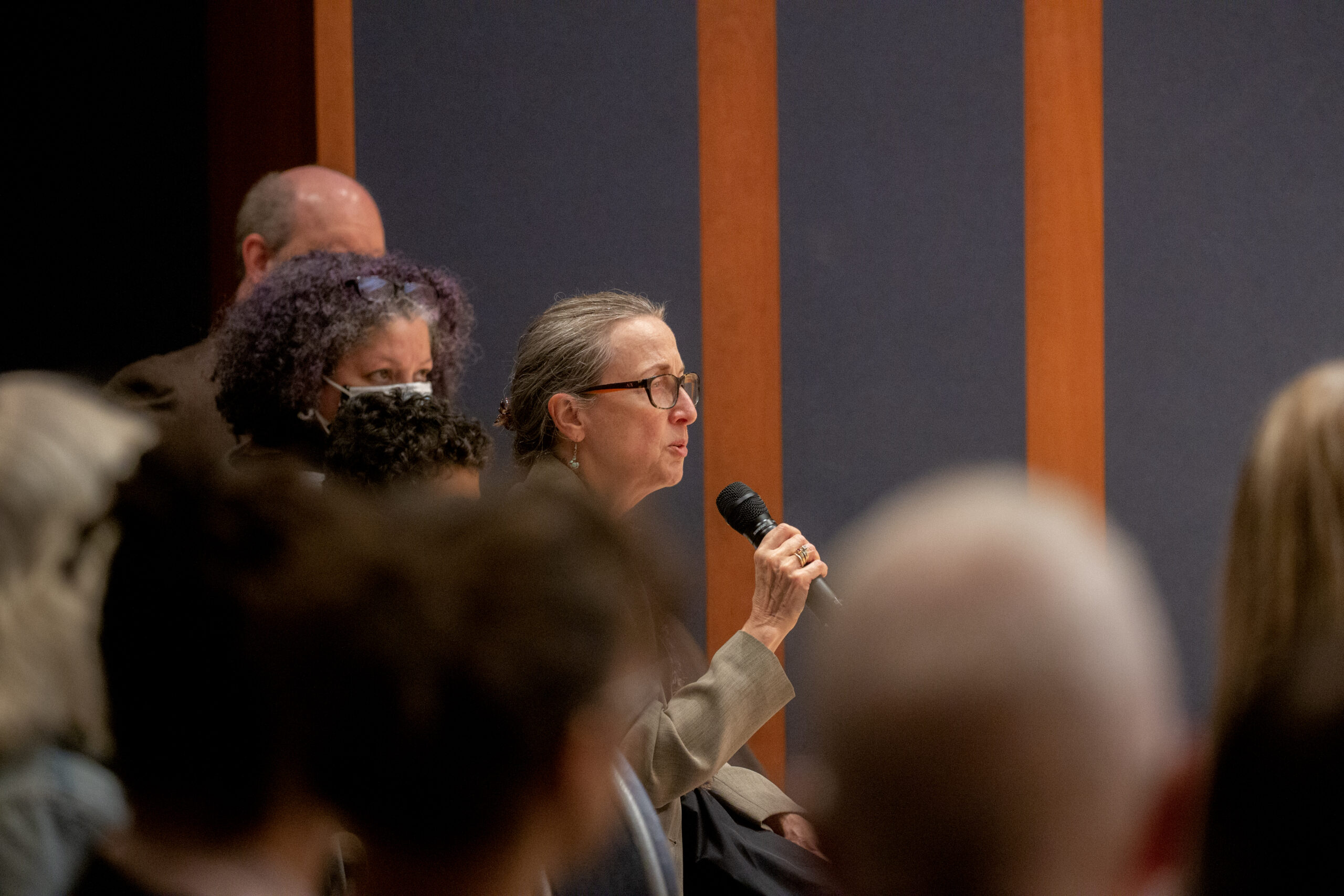Named Fellowships
The Science History Institute’s fellowship program is made possible by the generosity of a number of donors, each of whom recognizes the value of scholarly research on the history and sociology of the chemical and molecular sciences, technologies, and industries. Their gifts—in the form of endowments, annual gifts, and estate gifts—enable the Institute to be the leading center of research in the history of science and technology in the United States.
Visit the links below to learn about our named fellowships and the people who made them possible.
Current Fellowships
Past Fellowships
Allington Fellowship
The Allington Fellowships were created with a bequest from the estate of Robert W. Allington. The income from the bequest supports short-term fellowships on any topic in the history of the chemical and molecular sciences, technologies, and industries.
Allington (1935–2006) developed his skills in electronics by building radios, among other things, and by working as a television repairman. He worked as an intern at the Massachusetts Institute of Technology Lincoln Laboratory on the SAGE air defense computer in the spring of 1955. Near the conclusion of the internship, Allington was diagnosed with polio, and while still in the hospital, he met his future business partner, Jacob Schafer, an undergraduate at the University of Nebraska–Lincoln. Jobs repairing scientific equipment evolved into projects to fulfill requests from his clients for novel instrumentation. This led Allington to become an entrepreneur and he founded Instrumentation Specialties Company (Isco, now part of Teledyne Technologies, Inc.) in Lincoln in 1958.
Cain Fellowship
The Cain Fellowship was created with a gift from the late Gordon A. Cain. The income from the gift supports long-term fellowships, the Gordon Cain Conference, and a variety of travel grants.
Cain (1912–2002) received his BS in chemical engineering from Louisiana State University (LSU) and became one of this century’s most successful entrepreneurs in the chemical and biotechnology industries. After graduating from LSU, Cain worked for Freeport Sulphur and Merck. He commanded an army battalion during World War II, which gave him his first experience in management. Cain creatively applied the skills he learned in the army to management practices in the chemical industry. He acquired and restructured such companies as Vista Chemical, Arcadian, Sterling Chemicals, Cain Chemical, and Fiber Industries.
Doan Fellowship
The Doan Fellowship was created to honor the memory of Herbert D. “Ted” Doan with gifts from family, friends, and colleagues. The income from the investment of the combined gifts supports short-term fellowships on the history of chemical industries or chemical engineering.
Doan (1922–2006), grandson of Herbert H. Dow, was president and CEO of the Dow Chemical Company from 1962 to 1971. He served on the Dow and Dow Corning boards of directors and in 1973 founded Doan Associates, the second venture capital company in Michigan. Doan was a member of the American Institute of Chemical Engineers, the American Chemical Society, and Sigma XI. He held the positions of president and chairman of the Herbert H. and Grace A. Dow Foundation from 1996 until his death in 2006.
Garfield Fellowships
The Garfield Fellowships are funded through gifts from the Eugene Garfield Foundation. Garfield (1925–2017) was the founder of the Philadelphia-based Institute for Scientific Information, which now forms a major part of the science division of Thomson Reuters company. He undertook the development of a comprehensive citation index showing the propagation of scientific thinking in 1955. The creation of the Science Citation Index made it possible to calculate impact factor, which measures the importance of scientific journals, and led to the development of several Information Retrieval algorithms, like HITS and Pagerank.
The four Garfield Fellowships were created with three goals: To exemplify the entrepreneurial spirit and wide-ranging curiosity that characterized Garfield’s contributions to the scientific enterprise, to promote the research of gifted scholars on the heritage and future of the scientific enterprise, and to draw on and contribute to the collections and conversations that inform the Science History Institute community.
Theodore and Mary Herdegen Fellowship in the History of Scientific Information
Herdegen Fellowships are available to scholars doing research in the history of the production, transmission, and/or organization of scientific information. Preference is given to fellows working in areas of chemical information.
Noshir T. Mistry Fellowship in the History of Chemical Engineering
The Mistry Fellow will investigate diverse topics in the history of chemical engineering, including chemical process engineering and chemical product engineering.
Paul Otlet Fellowship in the History of Information Science
The Otlet Fellow will conduct research that carries forth our understanding of documenting information and its role in enabling and disseminating scientific discovery. Preference is given to fellows studying information science before 1944 or the internet, or to work that explores the political dimensions of science documentation.
Raquel and Arthur Seidel Fellowship in the History of Intellectual Property and Patents
The Seidel Fellow will work at the intersection of history of chemistry and the law in order to understand how the legal system has interacted with the scientific process as it relates to discovery, patenting, commercialization, and public perception.
Haas Fellowships
The Haas Fellowships—one for the history of chemical industries and one for public understanding—were created with a gift from John C. Haas.
Haas (1918–2011) was the son of the founder of Rohm and Haas Company (now part of Dow Chemical Company), a major global specialty-chemicals company. Educated as a chemical engineer at the Massachusetts Institute of Technology, he joined Rohm and Haas in 1942 and held many positions in the company, including chairman of the board. He was a strong advocate of civic responsibility and the cause of the less fortunate. Especially notable was his work for Temple University Hospital and the Boys and Girls Clubs of Philadelphia. Haas played a crucial role in the establishment of the Institute’s predecessor organization, the Center for the History of Chemistry, in 1982. For more than two decades he served on the Institute’s advisory boards and development committees, including a six-year term on the Institute’s Board of Directors.
Price Fellowship
The Price Fellowship was created by gifts from friends and admirers of Charles C. Price. The income from the investment of the combined gifts supports a long-term fellowship with a preference for scholars studying polymer history.
Price (1913–2001) received his BA in chemistry from Swarthmore College and his PhD in organic chemistry from Harvard University. Price taught at the University of Illinois, the University of Notre Dame, and the University of Pennsylvania, where he was made an emeritus professor. His research work centered on the effect of structure on chemical reactivity. Price served as founding chairman of the Institute’s Board of Directors and was central to the organization’s growth.
Science History Institute Fellowship
Science History Institute Fellowships were created with gifts from Peter Regna and Joseph X. Labovsky.
Peter Regna (1907–2001) spent his career developing innovative drugs. In 1950 he was part of a team at Pfizer that developed Terramycin and worked toward the production of penicillin, streptomycin, and other antibiotics. He was also among the first researchers in the field of genetic engineering while at the Squibb Institute for Medical Research. Regna held more than, 35 patents and was the 1986 recipient of the Perkin Medal from the American Section of the Society of Chemical Industry.
Joseph X. Labovsky (1912–2013) was born in Ukraine and as a young immigrant joined I.E. Du Pont de Nemours & Company as a laboratory assistant to Wallace Carothers, where he contributed to polymer research throughout his career, including the early development of nylon. Labovsky created the Wallace H. Carothers Fund in honor of his former supervisor, who is credited with the discovery of nylon and foundational work on neoprene.
Ullyot Scholarship
The Ullyot Scholarship is made possible through the generosity of Glenn E. and Barbara Hodsdon Ullyot. The income from their gift supports a short-term scholar pursuing historical research that promotes public understanding of the chemical sciences.
Glenn Ullyot (1910–2002) earned his BA at the University of Minnesota and a PhD in chemistry from the University of Illinois. His career was made at—and he made major contributions to—Smith Kline and French Laboratories (now GlaxoSmithKline). Barbara (1926–2009) went to work for the Philadelphia Section of the American Chemical Society in 1954. She transferred to the national office in Washington, D.C., in 1965, where she was a dedicated member of the Meetings, Expositions and Divisional Activities Department until she retired as department head in 1989. The Ullyots were early supporters and benefactors of the Institute.
Chemical Heritage Foundation Fellowship
Chemical Heritage Foundation Fellows conducted research in the Beckman Center for one to nine months between 1992 and 2016.
Edelstein Fellowship
The Edelstein Fellowships were created with an annual gift from the Sidney M. Edelstein Foundation. This gift supported two long-term fellowships on any topic in the history of the chemical and molecular sciences, technologies, and industries.
Sidney Edelstein (1912–1994) founded the Dexter Chemical Corporation in New York in 1945. His great dedication to the preservation and recording of the history and philosophy of science, technology, and medicine led him to play key roles in the promotion of excellence in academic historical study. As an active historian for almost half a century, Edelstein produced many of the earliest modern reviews of dyestuff technologies and related sciences, some based on original analysis of ancient colorants, such as the mollusks that were used to create the Biblical blue and Roman purple. His publications remain influential in historical research today.
Société de Chimie Industrielle Fellowship
The Société Fellowship was made possible through the generosity of the Société de Chimie Industrielle in support of short-term scholars conducting research designed to stimulate public understanding of the chemical industries.
The Société de Chimie Industrielle, founded in 1918 in New York as the American Section of a French parent, is an independent organization involved in a number of nonprofit activities. It sponsors the leading monthly luncheon speaker program at which prominent CEOs, government leaders, and scientists share their views on important industry developments. In addition to the fellowship, it jointly supports a minority scholars program with the American Chemical Society, and it honors individuals who have contributed significantly to the industry through its International Palladium Medal.

Available Opportunities
Peruse Beckman Center short- and long-term residential fellowships and travel grants.

How to Apply
Access application forms and instructions for our fellowships and library travel grants.

Meet the Fellows
Our scholars study a range of topics in the history and social studies of chemistry, chemical engineering, and the life sciences.

Application Guide
Optimize your fellowship application with this guide to candidate selection criteria and much more.

Frequently Asked Questions
Get answers to common questions, including international visas and daily life at the Institute.

Gordon Cain Conference
This annual gathering is organized by eminent scholars who work with the Institute to develop a theme of broad contemporary relevance.
